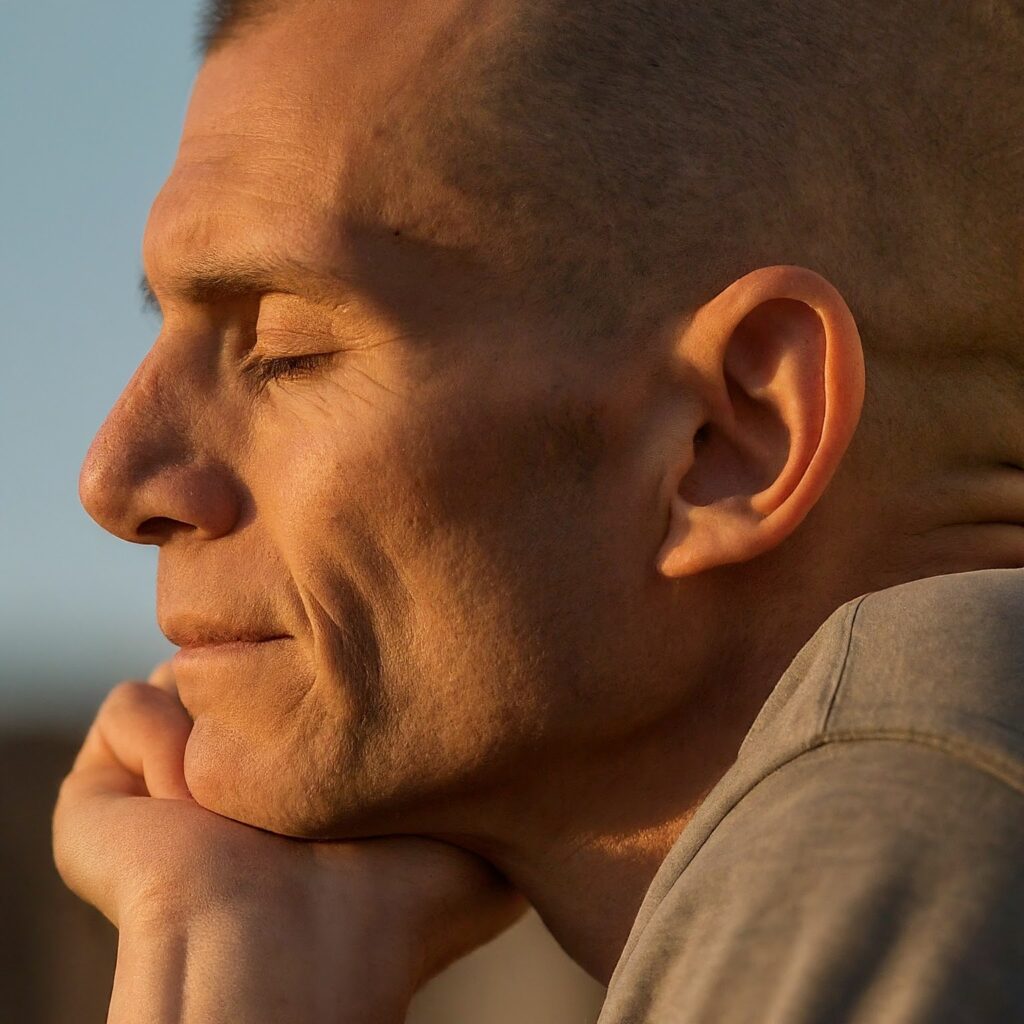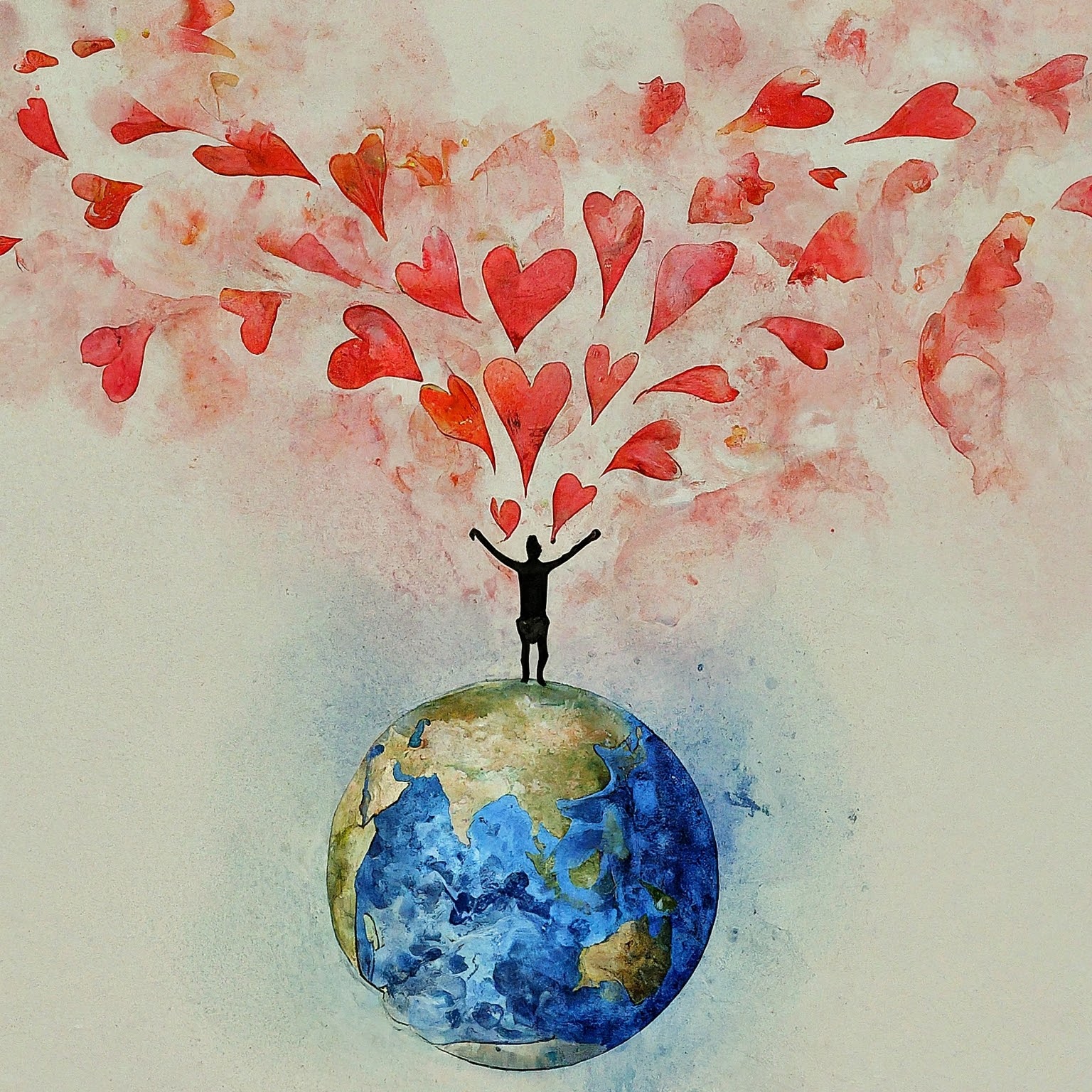Today we are covering the third Beatitude: “Blessed are the meek, for they will inherit the earth.” This might be the most misunderstood of them all because we are so upside down in regard to who should inherit the earth—in other words, who should be deemed successful. It’s certainly not “meek people,” right?
This is the fourth post in a series on The Beatitudes, 8 keys to happiness that Jesus gifted to the world in his Sermon on the Mount. This series is meant to be read in order, so if you have not read the first three, I suggest you do so and then circle back to this one.
In this post, you’ll learn all about meekness, its relationship to this Beatitude and all the others, and how it can function as a key to happiness. Specifically, you’ll learn:
- How meekness is typically misunderstood.
- What meekness actually means and what it looks like in practice.
- What meekness allows you to achieve in life.
- How to become a meek person.
What Does It Mean To Inherit The Earth?
There are two parts of the third Beatitude to dissect: what it means to be meek and what it means to inherit the earth. We’re going to tackle these in reverse order.
A simple way to interpret the phrase “inherit the earth” is to just think of it as referring to success. The ones who inherit the earth are the successful ones, and vice versa.
How Do You Measure Success?
So, how do you measure success?
Every society has its own standards of success: the individual qualities and achievements of a person that are celebrated. Today, our society has a very narrow definition of success, as portrayed in movies and celebrated in boardrooms. The ones who inherit the earth are the ones who stay late at the office, push boundaries, and aren’t afraid to take risks. They’re the movers and shakers, the ones at the top of the corporate ladder. They strain, hustle, and fight, often at the expense of their own well-being and that of others. It is simply the cost of doing business.

Wealth. Status. Power. When we define success in this way—the acquisition of more and more external things—it becomes a never-ending quest for validation that just leaves us empty in the end. At a certain point, it is healthier to realize that enough is enough, as Lao Tzu wisely observed thousands of years ago.
“Instead of pouring in more
Tao Te Ching, Chapter 9
Better stop while you can
Making it sharper won’t help it last longer
Rooms full of treasure
Can never be safe
The vanity of success
Invites its own failure
When your work is done retire
This is the Way of Heaven.”
Success For Mystics
We all have to pay the bills. We all have goals and ambitions that necessitate the attainment of some amount of status and power. The problems arise when we only pursue these things. In doing so, we lose sight of our inner compass. Thats’ because we’re directing all of our attention outwardly.
Success looks very different for mystics because we are constantly striving to go deeper and deeper within so that we may hear and feel the Divine. It is the exact opposite blueprint for success. The conventional societal approach is to suck in things from the outer world. The mystic way is to start from within so that the Will of God can flow from us into the outer world. The boardroom people try to inherit the earth by consuming it. But there will always be more earth than any one individual can consume. Mystics inherit the earth by enveloping it in the Love of the Divine—and this Love is infinite. There is a verse in the Qur’an that puts this vision of success in simple language.
“Be a community that calls for what is good, urges what is right, and forbids what is wrong: those who do this are the successful ones.” (3:103-04)
This is also the form of success that Jesus teaches through his Beatitudes. When our quests for worldly success are disrupted, we may initially feel distraught, but the Beatitudes remind us that these are the moments when God is calling us back to the road toward success that really matters most.
“Blessed Are The Meek” Meaning: The Third Beatitude
If you’re here reading this post, chances are that most of the above is not news to you. You know that the forms of success that society props up as the most desirable are artificial and illusory.
What you might be less well-versed in is the meaning behind the “Blessed are the meek” part of this Beatitude. And that’s because the word “meek” is often misinterpreted as equivalent to something like “timid,” “passive,” or “powerless.”
That is not meekness.
Meek is derived from a word that means something akin to: “Those who have swords and know how to use them, but choose to keep them sheathed.” THESE are the ones who will inherit the earth.
Meekness Vs. Weakness
The meek are those who have conquered their inner hunger for power, those who know their viciousness, but have the emotional and spiritual maturity to remain composed when pushed. It’s not the same as having a gentle personality, or not having enough self-esteem to stand up for yourself.
There’s a delightful Hindu parable about a snake and a holy man that clearly illustrates this crucial difference.
“The holy man said, ‘Listen, dear friend, how about promising me that you won’t bite anyone from now on?’ The snake bowed and nodded assent. The holy man went his way, and the snake began its life of innocence and nonviolence […] Fortunately, the holy man happened to come by to see his latest disciple and was touched by the bruised and battered condition of the snake. When he asked it what had happened, the snake said feebly, ‘O swami, you said I should not bite anyone. But people are so merciless!’ The holy man said, ‘I asked you not to bite anyone. But I didn’t ask you not to hiss!’”
Hindu parable

Meekness involves responding with kindness and love, even when it’s challenging, but not to the point of rolling over and letting others trample all over you. You hiss when necessary. Meekness breeds peace but emanates strength.
Meekness In The Bible
There are plenty of examples of meekness in the Bible that prove it means something different than weakness or passivity. The Book of Numbers says that “the man Moses was very meek, more than all people who were on the face of the earth.”
Still think meekness = weakness? Then let me refer you to Exodus 2:11-12.
“One day, after Moses had grown up, he went out to where his own people were and watched them at their hard labor. He saw an Egyptian beating a Hebrew, one of his own people. Looking this way and that and seeing no one, he killed the Egyptian and hid him in the sand.”
Yikes, okay THAT is not exactly meekness either—but it’s certainly not weakness! You see, even Moses had to undergo a bit of a personal transformation to learn how to keep his sword sheathed. And so, by the time we get to the aforementioned verse in Numbers (12:1-16), we are told a story in which Moses’ siblings, Aaron and Miriam, criticize him for choosing to marry a Cushite (African) woman.
This pisses off God, who swiftly punishes Miriam by afflicting her with leprosy. At that point, Moses, in all his meekness, chooses not to pile on by telling Miriam she got what she deserved, but instead pleads with God to heal her and not inflict any further punishment on her or Aaron.
This sentiment, of course, carries over into the New Testament, where Jesus teaches his disciples to show peace and love even to their enemies, and Paul says, “Bless those who persecute you; bless and do not curse them” (Romans 12:14).
Meekness As A Choice
Here’s another story—this time, about Mother Teresa.
She was living with several orphans in a small rundown apartment in Calcutta. Every day is a struggle for survival, a battle against hunger. One day the food runs out completely. With no other choice, Mother Teresa approaches a local shopkeeper, her hands outstretched towards him, and she asks him for food for the orphans.
Instead of a handful of rice or lentils, he spits disdainfully into her palms. Many people, when faced with such a blatant act of disrespect, would retaliate: raise their voice, tell the guy off, slap him, or maybe even spit back. But Mother Teresa wipes the saliva with an unperturbed calm and extends her hands once more. She says, “I thank you for what you have given to me. Now may I have some food for my orphans?”

Her unusual reaction stuns the shopkeeper into silence. He ultimately concedes and gives her the food she so desperately needs.
Mother Teresa’s meekness, her ability to maintain her composure in the face of degradation, is an extraordinary illustration of the truth of the third Beatitude. She could have gone into either fight or flight mode—retaliating or simply crying and running away. In either case, who could blame here? But neither response would have resulted in her gaining the food. Meekness allowed her to do so.
She may have just inherited some rice and lentils, but at that moment, those rice and lentils might as well have been the entire earth for the orphans who would have starved otherwise.
The Spiritual And Metaphysical Significance Of Choice
It’s easy to be kind and gentle when everything is going smoothly, but it’s during the trials of suffering where the choice to be meek is really amazing. Meekness is not a personality type. It’s not something that some people are born with and others aren’t. It’s a choice that comes from spiritual maturity.
A meek person actively chooses peace over conflict, understanding over argument, and humility over arrogance, not because they’re unable to fight but because they see the higher value in unity, harmony, and collective well-being. This makes them powerful agents of change, not in spite of their meekness but because of it. In the face of suffering, you have the opportunity to muster meekness and contribute to the healing of the world. And in doing so, you “inherit the earth.”
The Beatitudes really are all about choice—how we choose to respond to suffering and tough circumstances.
The problem of evil is something that all religions and all individuals must reckon with as part of their spiritual maturity. Why would the universe allow suffering? Why would a benevolent God allow hurt, pain, and anguish to exist? There are no easy answers to these questions, but the Beatitudes do offer one compelling answer.
The universe, or God, didn’t so much allow suffering as permitted the possibility of it. This is because authentic goodness requires the possibility of evil. Part of what makes someone truly wise and loving is their capacity for harm, but their decision to do good instead. This is the essence of meekness.
Choosing Love And Happiness For All
The other problem with our society’s attitude toward success is that it is so individualistic. There’s the haves and the have-nots. Again, that’s because the objects of this form of success are all finite things.
Through meekness, we can step away from the allure of all the flashy things that money can buy to instead see that true success and true happiness are collective enterprises fueled by an infinite resource: Love.
I’d like to share with you the Prayer of Francis of Assisi, which beautifully encapsulates the idea of choosing love over hate, understanding over anger, and embracing peace in your life.
Lord, make me an instrument of your peace:
where there is hatred, let me sow love;
where there is injury, pardon;
where there is doubt, faith;
where there is despair, hope;
where there is darkness, light;
where there is sadness, joy.
O Divine Master, grant that I may not so much seek
to be consoled as to console,
to be understood as to understand,
to be loved as to love.
For it is in giving that we receive,
it is in pardoning that we are pardoned,
and it is in dying that we are born to eternal life.
Amen.
I love this prayer. It shifts the focus from self to others, like the actions of Mother Teresa, who chose to react with empathy when faced with disrespect from the shopkeeper. Meekness allows us to embrace the power of the soul to influence the world positively.
Becoming Meek
This post would not be complete without some words of practical guidance on how to become a meek person. So here it is!
The development of meekness is a practice of patience and understanding. Listen more than you speak and seek to comprehend others’ perspectives before forming judgments. Give others the benefit of the doubt, acknowledge the potential for good in everyone, and ALSO understand where your personal boundaries are.

Self-reflection is a critical starting point. What are your triggers? Have you dealt with traumas that you might have experienced in the past? You need to make a conscious effort to observe and understand your reactions and emotions, especially during challenging situations. Mindfulness can foster this awareness, as well as CBT, somatic therapy, meditation, and any inner work that helps you mature as a person.
“Blessed are the meek, for they shall inherit the earth”. You are blessed when you’re content with just who you are—no more, no less. From there, you find yourself owning everything that cannot be bought.
Blessed are those who soften what is rigid inside themselves, for they achieve a proper relationship with their power.
The meek are the peacemakers, the bridge builders, and the healers. These individuals, in their quiet strength, ultimately “inherit the earth.” As you continue on this journey of spiritual maturity and cultivating meekness, you’ll build a resilience that allows you to face the world with grace, dignity, and an unwavering commitment to the values you hold dear. And you’ll become an agent of Love and happiness for both yourself and others.
Frequently Asked Questions
The third Beatitude means that success is measured differently by mystics and people who earnestly seek spiritual growth. It’s not about how wealthy or powerful or famous you are to the outside world. The third beatitude’s vision of success in life is defined by inner growth and how that manifests in your interactions with others.
The popular opinion in the world of who will inherit the earth is that it is the rich and powerful who claw their ways up the social ladder. The third beatitude contrasts with this because it defines success in a very different way. According to the third beatitude, those who inherit the earth are those who spend more time working on themselves–deepening their spiritual maturity and connection with God. The people who rise to the top of the social ladder may appear outwardly successful, but inwardly they may be suffering because they’ve neglected what matters most.
“Meek” in the Bible means being spiritually mature enough to restrain yourself in certain situations. It is a common misconception that “meek” means “passive” or “weak.” Rather, “meek” is derived from a word that means something like “Those who have swords and know how to use them, but choose to keep them sheathed.”
Paragraph
Paragraph



